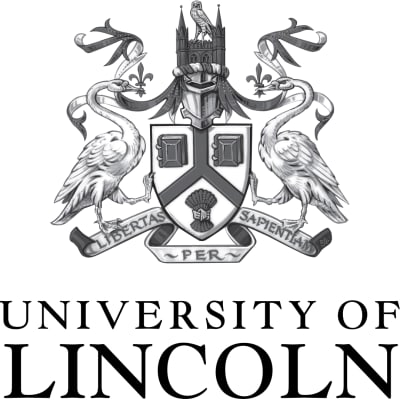
MA Criminology and Criminal Justice
University of Lincoln

Key Information
Campus location
Lincoln, United Kingdom
Languages
English
Study format
On-Campus
Duration
1 - 2 year
Pace
Full time, Part time
Tuition fees
Request info
Application deadline
Request info *
Earliest start date
Request info
* most of our postgraduate courses have no specific closing date for applications. Please allow enough time for your application to be considered prior to the start date. If you are an international student you may need to factor in time for your visa application. We would advise you to apply as soon as possible
Discover Lincoln Wherever You Are in the World
Our webinars, subject masterclasses, question and answer sessions, and student panel talks are a great way to discover what it is like to live and study at the University of Lincoln.
Introduction
The MA Criminology and Criminal Justice challenge students to engage with contemporary issues faced by the criminal justice system from both a criminological and legal perspective.
In the 21st Century, the means by which we respond as a society to crime and victimisation is under greater scrutiny than ever before. How we respond to cases of historic sexual abuse, the use of imprisonment as a just and effective means of punishing or rehabilitating criminals, and the challenges posed by organised crime and international terrorism, mean criminological and legal scholarship are being brought to the forefront.
This course is designed to equip students with the conceptual tools needed to engage with such issues, imparting a broad range of cognitive, analytical, and general transferable skills including judging and evaluating evidence, interpreting data, generating and synthesising information, and formulating reasoned arguments.
"This information was correct at the time of publishing (July 2023)"
Admissions
Curriculum
How You Study
Students can engage with criminological knowledge and learn to approach the legal questions raised by this knowledge in a reflective and critical way. Drawing on staff expertise across both social science and legal disciplines, students are able to study and engage in research on criminological theory, penology and penal policy, terrorism, policing environmental crime, international criminal justice systems, and criminological research methods among many other issues of contemporary relevance to both criminologists and criminal lawyers.
Combining both a social science and legal education, the degree offers a rigorous programme enriched by research, scholarship, and knowledge exchange to prepare students for study and research at the postgraduate level, and for the workplace.
Students in this programme are expected to complete four core modules, two optional modules, and a dissertation. During the course, there are lectures and students take part in two-hour seminar sessions which can include group discussions and some group presentations. A typical teaching week may include eight hours of contact time across two or three days for full-time students, and four hours for those studying part-time.
Core Modules
- Critiquing Criminological Theory
- Comparative Penology and Penal Policy
- Researching Social and Political Sciences 1 and 2
- Introduction to Criminal Justice 1 and 2
- Dissertation (Criminology and Criminal Justice)
Optional Modules
- Dangerousness, Offenders and Public Protection
- International Criminal Justice
- Gender, Deviance, Crime and Society
- Police Powers: National and International Perspectives
- Transnational and Organised Crime
- Terrorism
- Contact and Independent Study
Weekly contact hours on this programme vary depending on the module being delivered and the stage of the study. The postgraduate level study involves a significant proportion of independent study, exploring the material covered in lectures and seminars. As a general guide, for every hour spent in class, students are expected to spend at least two to three hours in an independent study. For more detailed information please contact the Programme Leader.
Master's Level
- Comparative Penology and Penal Policy (Core)
- Critiquing Criminological Theory (Core)
- Dissertation (Criminology and Criminal Justice) (Core)
- Introduction to Criminal Justice 1 (Core)
- Introduction to Criminal Justice 2 (Core)
- Researching Social and Political Sciences for Criminology 1 (Core)
- Researching Social and Political Sciences for Criminology 2 (Core)
- Gender, Deviance, Crime and Society (Option)†
- Green Criminology (Option)†
- International Criminal Justice (Option)†
- Police Powers: National and International Perspectives (Option)†
- Terrorism (Option)†
† Some courses may offer optional modules. The availability of optional modules may vary from year to year and will be subject to minimum student numbers being achieved. This means that the availability of specific optional modules cannot be guaranteed. Optional module selection may also be affected by staff availability.
How You Are Assessed
The way students will be assessed in this course will vary for each module. It could include coursework, such as a dissertation or essay, written and practical exams, portfolio development, group work or presentations, and the production of a research proposal.
Assessment Feedback
The University of Lincoln's policy on assessment feedback aims to ensure that academics will return in-course assessments to students promptly – usually within 15 working days of the submission date.
Research Areas, Projects and Topics
Research within the School spans a broad array of doctrinal, empirical, and theoretical work, as well as exploring the role of law in broader social science. Specialisms include youth justice, policing, penology, terrorism, social research methods, violence, modern slavery and trafficking, and dangerous offenders. These and other areas would be suitable for students to focus their dissertation research on.
Students are encouraged to get involved in research events undertaken by the centres and groups attached to Lincoln Law School. Research centres include Lincoln Centre for Environmental Law and Justice, Law in a Global Context, and Conflict and Disasters Research Group. Find out more about our research.
Gallery
Program Outcome
How You Study
Students can engage with criminological knowledge and learn to approach the legal questions raised by this knowledge in a reflective and critical way. Drawing on staff expertise across both social science and legal disciplines, students are able to study and engage in research on criminological theory, penology and penal policy, terrorism, policing, environmental crime, international criminal justice systems, and criminological research methods among many other issues of contemporary relevance to both criminologists and criminal lawyers.
Combining both a social science and legal education, the degree offers a rigorous Program enriched by research, scholarship, and knowledge exchange to prepare students for study and research at postgraduate level, and for the workplace.
Students on this Program are expected to complete six core modules, two optional modules, and a dissertation. During the course, students can take part in lecture and seminar sessions which can include group discussions and some group presentations.
Scholarships and Funding
Several scholarship options are available. Please check the university website for more information.
Program Tuition Fee
Career Opportunities
Criminology graduates can pursue work in a variety of different areas including the civil service, police, academia, and the National Probation Service, although the combination of both criminological and legal analysis covered by the course offers graduates a wide array of different career choices.
The University Careers and Employability team can provide tailored, individual support and career advice. The service can include one-to-one coaching, CV advice, and interview preparation. Alumni can continue to access support and advice for up 15 months after graduating. The service works closely with local, national and international employers, acting as a gateway to the business world.